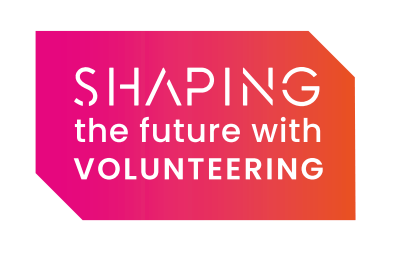We have collated research relating to volunteer management and volunteering in the UK.
If you think we have missed any important research, please let us know.
We have collated research relating to volunteering in the UK. If you think we should add any, please let us know in the comments below or by contacting us.
2019
Time Well Spent: A National Survey on the Volunteering Experience (summary)
NCVO – 2019
Wellbeing: The Benefits of Volunteering (download)
Dr Ricky Lawton and Will Watt at Jump Projects – 2019
A summary of work from 2014-2019 into the benefits of volunteering on wellbeing.
Wellbeing: Happy Days: Does volunteering make us happier or is it that happier people volunteer? (download)
Dr Ricky Lawton, Iulian Gramatki and Will Watt – 2019
Addressing the problem of reverse causality when estimating the wellbeing impacts of volunteering
2018
GIVERS: Using behavioural science to recruit and retain volunteers more effectively (download)
Daniel Fujiwara, Ricky Lawton and Will Watt – June 2018
Behavioural science on why people do and don’t volunteer
Wealth: A Bit Rich: Why is volunteering biased towards higher socio-economic groups? (download)
Dr Ricky Lawton and Will Watt at Jump Projects – 2018
New research into the motivations and barriers to volunteering, focused on socio-economic groups.
Diversity: The ABC of BAME (download)
Dr Ricky Lawton and Will Watt at Jump Projects – 2019
New, mixed method research into black, Asian and minority ethnic groups and their motivations and barriers to volunteering
2015
The New Alchemy: How volunteering turns donations of time and talent into gold (summary)
Joe Saxton, Tim Harrison and Mhairi Guild – March 2015
The process of volunteering is therefore a kind of alchemy. Volunteering takes up that most universal of human resources – time. It takes that universal resource, so often squandered, and uses it to transform people’s lives. It takes a universal base asset and turns it into the human gold of changed lives.
2014
Hidden Diamonds: Uncovering the true value of sport volunteers (download)
JoinIn – 2014
Join In undertook this research to understand the value of the volunteers recruited and retained, and the return on the investment in those aims.
2011
Volunteers who manage other volunteers and the professionalisation of volunteer management: implications for practice (PDF)
Matthew Hill and Daniel Stevens – Voluntary Sector Review, Volume 2, Number 1, March 2011, pp. 107-114 (8), Policy Press (summary)
In debates over the professionalisation and formalisation of volunteer management, the role of volunteers who manage other volunteers (VMVs) has been largely ignored. This paper explores the prevalence of this form of volunteer management, the profile of VMVs, their support needs and how the trend towards management by volunteers can be squared with the professionalisation of good practice. It argues that VMVs exist in a variety of organisational forms and draws out some key implications for practice for the main organisational settings.
2010
Developing volunteer management as a profession (PDF)
Steven Howlett – 2010 – Voluntary Sector Review, Volume 1, Number 3, November 2010, pp. 355-360(6)
Over the last 10 years, volunteers have reported improved levels of satisfaction with the way their work is organised. This has coincided with developments in the theory and practice of volunteer management. Further initiatives are taking place but need to be set in a wider context. This paper reviews the need for appropriate forms of management and argues that the development of volunteering as a profession offers the best way forward. A professional body would guard the diversity of volunteer involvement and management by putting volunteer managers in control of the way their roles will be developed.
Valuing Volunteer Management Skills (PDF)
Georgina Brewis, Matthew Hill and Daniel Stevens – September 2010 – Skills Third Sector – Institute of Volunteering Research
2008
Management matters: a national survey of volunteer management capacity (PDF)
Joanna Machin and Angela Ellis Paine – April 2008 – Institute for Volunteering Research
Report of the Commission on the Future of Volunteering and Manifesto for change (PDF)
January 2008 – Chaired by Baroness Neuberger DBE
The Commission on the Future of Volunteering was established by the England Volunteering Development Council in order to develop a long-term vision for volunteering in England.
2006
Are ‘professional’ HR practices compatible with volunteer management? “True affinity and beyond?…” (PDF)
Stephen Moreton – 2006 – Attend Academy
2005
The 21st Century volunteer: A report on the changing face of volunteering in the 21st Century (summary)
Elisha Evans and Joe Saxton – November 2005
This report aims to help voluntary organisations understand the current volunteering environment and to anticipate how volunteering will change over the coming years. In particular, it aims to disseminate the ways in which volunteer management will need to develop in order to accommodate changes in the external environment.
2003
A choice blend – What volunteers want from organisation and management (PDF)
Katharine Gaskin – April 2003 – A report for the Institute for Volunteering Research and the England Volunteering Forum – Report summary
2002
A Standards Framework for Managing Volunteers (PDF)
A Report to the Voluntary Sector National Training Organisation from The Management Standards Consultancy – June 2002
2001
Bright Future: Developing Volunteer Management (PDF)
Pat Gay – November 2001 – Institute for Volunteering Research
Volunteering – Compact Code of Good Practice (PDF)
Original publication date: October 2001 (revised 2005)
The Compact is the agreement between the Government and the voluntary and community sector to improve their relationship for the benefit of each other and the communities they serve.
2000
The Right Stuff: New ways of thinking about managing volunteers (PDF)
Meta Zimmeck – May 2000 – Institute for Volunteering Research – Report summary
Organising cultures: voluntarism and professionalism in UK charity shops (PDF)
Richard Goodall – VAJ 2000 (vol 3, number 1) (summary)




